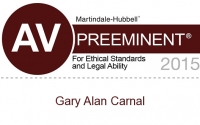Does a Seller Have to Disclose Problems With a House to the Buyer?
Historically the law when it came to buying or selling real estate was “let the buyer beware.” In other words, it was the buyer’s sole responsibility to learn about any potential defects in a house before closing. But in 1985, the Florida Supreme Court declared that “where the seller of a home knows of facts materially affecting the value of the property which are not readily observable and are not known to the buyer, the seller is under a duty to disclose them to the buyer.”
For example, if the seller knows the house has a leaky roof or was recently treated for a termite infestation, such facts must be disclosed to the buyer. These disclosures should be made before a sales contract is signed and the buyer puts down a deposit. If the seller fails to make any required in timely manner, he or she may be liable for damages to the buyer.
Broker Faces Trial for Employee/Seller’s Alleged Nondisclosures
A seller’s broker or real estate agent may also be held responsible, as illustrated by a recent decision by a Florida appeals court. This case involves a pending lawsuit arising from the sale of a home. After the sale closed, the buyer claims she “discovered many defects materially affecting the value of the property, which were not readily observable” or disclosed to her by the seller or his real estate agent.
Actually, the seller served as his own real estate agent. The buyer therefore named the seller’s employer, who was also the seller’s broker, as a co-defendant. Before the trial court, the broker moved for summary judgment in its favor. The court granted this motion without offering a written explanation.
This got the attention of the Fourth District Court of Appeal, which reversed the summary judgment and returned the case for trial. Taking the buyer’s allegations at face value, the Fourth District said she had presented a viable claim against the broker. The court explained that a home seller’s duty to make material disclosures under Florida law “extends to a seller’s real estate broker.”
In this case, the broker argued it should not be liable because the seller “was acting outside the scope of his agency because he was engaged in fraudulent conduct.” The Fourth District said that made no sense. The broker, after all, is the seller’s agent and stands to financially benefit (via commission) from any sale, including one procured by fraud.
Limits to a Seller’s Disclosure Obligations
One thing to keep in mind is that Florida law does not require a seller to disclose any defects that he or she is not aware of. The duty to disclose only arises when the seller has actual knowledge. The seller is not obligated to look for problems with a house before placing it on the market.
Buying or selling a home is often a more legally complicated process than you might think. That is why you should always work with an experienced St. Petersburg real estate attorney who can help protect your interests. Contact the attorneys at Carnal & Mansfield, P.A., if you need immediate assistance with any type of real estate matter.







